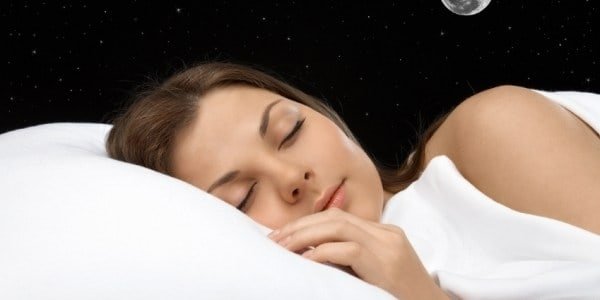How does a full moon affect sleep duration?

A study conducted by researchers from the University of Toronto, Canada, shows that when there is a full moon, people spend less time in a state of deep sleep. According to this, the phases of the moon adversely affect the brain functions.
Numerous experiments conducted by scientists show that the phase of deep sleep is necessary for the human brain for a full rest and for processing the information received throughout the day.
However, under a full moon, people cannot fall asleep for long and spend less time in deep sleep than usual.
Research shows that under a full moon, it takes an average of twice as long for a person to fall asleep. For example, women who need no more than 25-30 minutes to fall into sleep intoxication, but due to the lunar phases, this time increases to 52 minutes.
The full moon, despite popular opinion, affects not only the fair sex, but also men. This moon phase is the reason why it takes men 60 minutes to fall asleep, when normally this time is no more than 30 minutes.
During the experiment, scientists tracked the way of life and sleep patterns of 300 middle-aged people. The researchers’ observations helped to clarify to what extent the phases of the moon affect human sleep.
Scientists report that the full moon doeshave a stronger effect on women.
Earlier at the University of Bern, Switzerland, a similar study was conducted. In 2006, scientists found that a person sleeps an average of 6 hours and 49 minutes if the moon is not visible, that is at new moon.
But under a full moon, the participants in the experiment slept no more than 6 hours and 41 minutes.
In addition, researchers have found that lunar cycles are associated with increased anxiety, the development of depression, and the occurrence of bladder health problems.
One of the explanations for these changes in human sleep is based on the intensity of solar radiation, other scientists believe that the influence of the moon is related to the power of tides, a change in electromagnetic radiation, and also of gravity.
These factors actually can affect the release of neurohormones.
However, according to Professor Jim Horne, we humans are facing an ancient adaptation mechanism – our ancient ancestors were forced to stay awake during the full moon because it meant low tide and available food in the form of fish and crustaceans.



